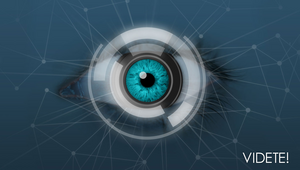Motivation
Artificial intelligence currently influences many areas, including machine vision. For applications in the fields of autonomous systems, medicine and industry there are fundamental challenges: 1) generating prior knowledge to solve severely under-determined problems, 2) verifying and explaining the response calculated by the AI, and 3) providing AIs in scenarios with limited computing power.
Goals and Procedure
The goal of VIDETE is to use AI to generate prior knowledge using machine learning processes, thus making previously unsolvable tasks such as the reconstruction of dynamic objects practically manageable with just one camera. With suitable prior knowledge it will be easier to analyze and interpret general scenes, for example in the area of autonomous systems, with the help of algorithms. Furthermore, methods will be developed to justify the calculated results before they are used further. In the field of medicine this would be comparable to the opinion of a colleague in contrast to the general answers of current AI methods. A key technique is considered to be the modularization of algorithms, which will especially increase the availability of AI. Modular components can be realized efficiently in hardware. Thus, calculations (e.g. the recognition of a gesture) can be performed close to the generating sensor. This, in turn, enables semantically enriched information to be communicated with low overhead, which means that AI can also be used on mobile devices with low resources available.
Innovations and Perspectives
Artificial intelligence finds its way into almost all areas of daily life and work. The results expected from the VIDETE project will be independent of the defined research scenarios and can contribute to progress in many application areas (private life, industry, medicine, autonomous systems, etc.).


